Hyundai is undoubtedly an automotive giant. The Korean company produces 1.6 million cars a year in their Uslan factory alone, which are shipped around the world to buyers in (almost) every continent. As of 2022, Hyundai is the third-largest car manufacturer in terms of sheer production volume in the world behind rivals Volkswagen and Toyota. This post studies the matter of Hyundai reliability and offers facts about how well the brand’s cars are performing.
So despite these impressive statistics how come people still question the brand’s reliability? In truth, this opinion stems from the car’s history and its first foray into the international market…
The JD Power UK Survey found that Hyundai was voted the most reliable brand in the country by customers.
Are Hyundai Good Cars
Hyundai’s current lineup covers every base imaginable from budget compacts, to SUVs, to two-door sports coupes.
Hyundai i10 Reliability
The cheapest model available currently is the i10 hatchback which can be yours for as little as $16,000 (or £12,800) brand new. The car has received good reviews all around praising the spacious interior, comfortable interior, and great mpg. Rated a 4/5 safety rating helps as well along with no mention of poor reliability.
Having driven the car myself I found that for an ‘econo-box’ few can provide what the i10 does for the same price – if all you’re after is a cheap runabout the i10 was spades above its rivals like the 2018 Aygo which felt cheap and fragile in comparison.
Hyundai i20 Reliability
In 2018 the Hyundai i20 (Hyundai’s larger hatchback aimed at family buyers) scored a 96.5% on the WhatCar reliability rating making it the seventh most reliable car of the year. This statistic is based on WhatCar’s survey contains data from 18,284 owners who told us how troubled their cars had been in the previous 12 months.
You can read our review on the i20 here which delves further into why we feel it hits the mark as an enjoyable and affordable hatch.
Hyundai i30N Reliability
Hyundai’s sporty hatch – the i30N (or Elantra GT as it is called in the US) has been a hit with the public since it went on sale in 2017. This sporty compact at top spec has a 2.0l turbocharged engine with 271bhp and 260lb-ft of torque. 0-60mph in 6.1 seconds and a top speed of 160mph is nothing to scoff at yet there are no reliability drawbacks by choosing one of Hyundai’s sportier models.
According to CarBuyer UK who had an i30N to play with for six months, the car had no electrical or mechanical faults and was entirely bulletproof.
“Hyundai as a brand came 10th out of 32 manufacturers in our 2017 Driver Power customer satisfaction survey. Owners praise their cars’ interiors and comfort, placing the South Korean brand eighth in this area. Economy and practicality garnered similar results…”
Hyundai Santa Fe Reliability
If a car with more road presence is what you’re after then the Hyundai Santa Fe SUV has that in spades. The largest vehicle produced in South Korea, the Santa Fe’s dimensions put it in the same category as the Audi Q7 and Range Rover Sport, however, at a fraction of the price. It’s no wonder approximately 117,000 were sold last year in the US alone.
According to a recent survey; “only 6.2% of owners reported any faults at all with their cars during the first year of ownership, and that ironclad five-year/unlimited mileage warranty provides further reassurance.” Good news on the reliability front once more.
You can read a more comprehensive review of the Santa Fe here.
Hyundai Tucson Reliability
The Tucson – Hyundai’s compact SUV has an average repair costs of £253.72 and in a 2017 Driver Power survey by CarBuyer the Tucson was rated incredibly highly for long-term reliability. Just 9% of buyers said they had experienced a technical problem with their Tuscon.
The Tucson was also the best-selling second-hand car of 2018 according to statistics by the AA vehicle repair service. Reliability plays a large role in if a car is re-sellable as cars with a reputation for sturdy build quality are more likely to attract buyers looking for a safe investment.
Hyundai is following the trend of other manufacturers in expanding their lineup to include environmentally-friendly models. But with more complex drive-trains comes the possibility of more issues. However, if the build quality and engineering are carried out with enough expertise this shouldn’t be an issue.
Hyundai IONIQ Reliability
The IONIQ is a hybrid four-door hatchback aimed at environmentally conscious family buyers. We reviewed this model and found that the IONIQ is a true threat to the Prius’ hybrid crown. The IONIQ comes laden with technology and has a fast recharge time which is incredibly important.
On the reliability front, the IONIQ is hard to compare to other Hyundai models since it doesn’t share much technology with any others in the range. However, if Hyundai’s current track record is anything to follow then it’s top tier in terms of bulletproof engineering.
Hyundai NEXO Reliability
Given Hyundai’s presence at the forefront of car technology and safety, it’s no surprise that they are exploring new possible ventures. The ‘NEXO’ is powered by a fuel cell – an alternative energy source that few other manufacturers have explored.
Luckily, we had the chance to drive one and were amazed at such a futuristic concept coming from a company like Hyundai, hardly renowned for being a tech giant.
In short, fuel cell cars like the Hyundai NEXO combine hydrogen and oxygen to produce electricity. It can then be used to power an electric motor. In terms of how reliable a production fuel cell vehicle will be, only time will tell when they are eventually rolling off the line.
Hyundai Palisade Reliability
The Hyundai Palisade is the brand’s flagship SUV, offering a perfect blend of style, comfort, and utility. Introduced for the 2020 model year, it seats up to eight passengers and boasts a luxurious interior.
As for its reliability, early returns are positive. The Palisade comes packed with advanced safety and tech features, ensuring that both drivers and passengers are well-catered for. While its time in the market has been limited, initial reports suggest a few mechanical issues. Plus, with Hyundai’s reputation for solid engineering, many experts believe the Palisade will remain a dependable choice for families.
Hyundai Sonata Reliability
A staple in Hyundai’s lineup, the Sonata is known for its comfort, value, and overall practicality. This mid-size sedan is not just about looks, but also about delivering consistent performance.
In recent years, the Sonata has seen improvements in both build quality and features. While some older models faced occasional recalls, newer editions appear to have addressed these concerns. Moreover, Hyundai’s commitment to after-sales service ensures that owners can drive with peace of mind. Remember, a consistent maintenance schedule can significantly extend the life of any car, and the Sonata is no exception.
Hyundai Kona Reliability
Compact, yet fiercely modern, the Hyundai Kona has made waves in the subcompact SUV segment. Whether you’re going for the traditional gasoline model or the electric version, the Kona promises a zippy performance combined with practicality.
Reliability? It’s been mostly thumbs-up from users. Of course, the electric model, with its limited history, might raise eyebrows for some, but initial feedback and reviews suggest that the Kona Electric is just as reliable as its gasoline counterpart. The Kona’s compact size makes it ideal for city driving, and Hyundai’s extensive warranty provides added peace of mind.
Hyundai Elantra Reliability
A long-standing nameplate in the Hyundai lineup, the Elantra is synonymous with affordability and reliability. Over the years, this compact sedan has built a reputation for being a cost-effective and dependable choice for daily commuting.
Recent models of the Elantra have been praised for their modern design, improved interiors, and efficient fuel economy. While older models had a few issues here and there, Hyundai has been proactive in addressing them. As with any vehicle, regular maintenance is crucial, but with the right care, the Elantra proves to be a lasting companion.
Hyundai Veloster Reliability
Sporty and unique, the Hyundai Veloster, with its three-door design, stands out in the crowd. This compact sports car has carved a niche for itself among young drivers looking for a mix of performance and value.
When it comes to reliability, the Veloster has mostly received positive feedback. Some earlier models faced minor glitches, but recent iterations seem to have ironed out most kinks. If you’re looking for a sporty ride without breaking the bank and without the worry of constant garage visits, the Veloster might just be your pick.
Hyundai Competition
In terms of reliability, Hyundai faces many rivals who offer great build quality, and seemingly limitless warranties. Now that Hyundai is competing with the automotive big boys they also have to match or exceed what standards they have set over the years.
The JD Power UK Survey found that Hyundai was voted the most reliable brand in the country by customers.
Hyundai achieved the least faults per 100 vehicles in the study. This measures problems customers experienced during the past year by original owners after 12-36 months of ownership. Suzuki was named the second most reliable car brand, and Kia third.
German manufacturers fared the worst in the survey, with Mercedes-Benz achieving 14th place in the table. BMW ranked worst, below Fiat, and Audi was also in the bottom three. Arguably this could be due to the recent influx of finance options on offer for premium vehicles. Thus, making them more readily available to members of the public.
Interestingly, in AutoExpress’ 2018 Driver Power survey, Hyundai ranked 8th behind Lexus, Jaguar, Mercedes, Honda, Skoda, Toyota, and Volvo.
Yet in terms of complete driver satisfaction Hyundai only scores 6.08% lower than Lexus who triumphed overall at 1st place. This truly shows that the modern customer won’t put up with an unreliable car. Hence, the days of Alfa Romeo and TVR producing notoriously unreliable cars were a thing of the past.
In 2011, a survey was done by Which? named Hyundai the most reliable car brand of the year. This was also the case in 2013, and Hyundai was also named the most reliable by CarMD in a study that examined repair frequency and the overall costs. According to CarMD, Hyundai has the lowest repair number of repairs per year and the second-lowest average repair cost.
Is Hyundai Reliable
One of the reasons Hyundai trumps the competition in terms of reliability is its exceptionally good warranties. Hyundai offers unlimited mileage 5-year warranties, which is far superior to the industry average, approximately 60,000 miles or 3 years.
Longer warranties inspire buyer confidence. This shows that Hyundai believes their build quality is to a high enough standard that repairs won’t be a regular occurrence. Therefore, the more confidence in Hyundai’s reliability instills in buyers, the greater they rate the company in terms of reliability.
If perchance buyers are amongst the 9% of Tucson buyers who experienced technical issues they are still under the warranty, this safety net once again increases how reliable the brand is viewed by the public.
The widespread access to parts, and dealerships located all around the world, translates to low repair costs which means that parts can be ordered quickly and efficiently.
Hyundai History
Hyundai is an older company than many people think, It was founded 52 years ago in 1967, in South Korea’s capital city Seoul, by entrepreneur Chung Ju-Yung.
First Manufacturing Of The Ford Cortina
A little-known fact is that Hyundai’s first role was the manufacturing of the Ford Cortina which was first sold in the UK in 1968. After having relative success in the production industry Hyundai board members decided they wanted to try their hand at producing their own named vehicle and in 1975, the Hyundai Pony began rolling off the production line.
1975 – The Hyundai Pony
This compact was designed by engineered by British Leyland workers including George Turnball, utilized a Mitsubishi power train, and was styled by Italian Giorgetto Giugiaro of ‘ItalDesign’. Hyundai entered the international market in 1982 selling 2993 cars in the UK alone.
1984 – Exports Abroad To Canada
In 1984 Hyundai began exporting the Pony to Canada, but not the US as it didn’t meet emission standards. This proved to be the wisest financial model Hyundai could have made. As such, the car was a commercial success, selling over 1 million cars in a year. At one point, Hyundai was the best-selling manufacturer in the whole of Canada.
1986 – Forbes Magazines ‘Best Product List’ -Hyundai Excel
Come 1986, Hyundai had begun its foray into the American market. In addition, they hoped for similar success to their Canadian market venture. The Hyundai Excel was ranked #10 on Forbes Magazine’s ‘Best Product List’ of ’86 because of its affordability. It was at this point Hyundai began to amass its reputation as a cheap imitation of Japanese models. They’ve been equated as cheap copycats of Toyota and Mitsubishi, with all the styling and none of the build quality.
Second Generation Of Pony – Poor Quality
This second generation of Pony was notorious for its poor build quality, although, for the low price, it still allowed Hyundai to get a significant foothold in the American market. Similarly priced vehicles at the time were the Eastern-bloc imports such as the Lada. These were far worse in terms of materials, build quality, and mechanical reliability.
1991 – Own Engine = Own Identity
In 1991 Hyundai began producing its own engine – the inline-four ‘Alpha’ and thus Hyundai gained its own identity as an individual manufacturer – no longer using components from its rivals. The Alpha was available in 1.3l, 1.4l, 1.5l, and 1.6l with a 1.5l turbocharged version also on sale.
Despite reliability concerns following the Gen 2 Pony, the Alpha was a surprisingly good engine with above-average fuel economy, decent performance, and excellent reliability, all at an affordable price.
Today – Third Largest Car Manufacturer
Today Hyundai dominates the Korean market and is the largest manufacturer in the country and in 2016, according to the OICA it was the third-largest car manufacturer in terms of sheer production volume. As of 2009, Hyundai is the world’s fourth-largest car manufacturer. And in 2011, it was the world’s fastest-growing car company for two years in a row.
Over the years Hyundai has grown from a relatively obscure Asian car manufacturer around the world to a household name in the UK, US, Canada, and India. This is in part thanks to their closest rivals, Toyota, Honda, and Mazda, being amongst the most highly respected car companies in the world and so with this strong competition, Hyundai must do better than all three in some respect, to amass orders and customers.
In Conclusion…
As you can see, Hyundai is top tier when it comes to reliability and consistently ranks in the top five car companies for dependable service. Modern Hyundais face no more reliability problems than any other manufacturer such as Toyota, Volkswagen, Honda, or Mazda. In fact, there hasn’t been an infamously unreliable Hyundai in production since the Pony II which hasn’t been made since 1990.
If you aren’t swayed by badge snobbery and are looking for a reasonably priced, economical car, with amazing reliability you can’t go wrong with South Korea’s finest.
Hyundai Reliability Essential Knowledge
- Hyundai gained popularity with its 5-year/60,000-mile warranty, one of the longest in the car industry, and has built its reputation as a world-class car maker by the turn of the millennium.
- Hyundai launched its first SUV, the Santa Fe, in 2000, which quickly became the company’s best-selling car in the US.
- Hyundai is known for innovation, introducing the IONIQ in 2016, the world’s first car to offer three electrified powertrains – hybrid, plug-in hybrid, and full electric.
- According to Consumer Reports’ annual reliability survey, Hyundai ranked No. 6 among 26 brands, with a score of 62, and is known for producing reliable, stylish, easy-to-drive, and budget-friendly cars.
- The predicted reliability score of a car is calculated on a 0-to-100-point scale based on factors like industry standing, coverage, cost, critical reception, and customer service.
- Hyundai’s reliability rating is 4.0 out of 5.0, which ranks it 4th out of 32 for all car brands, and the average annual repair cost for a Hyundai is $468, lower than the average annual repair cost for all cars ($652).
- Popular and reliable used Hyundai models include the Sonata, Elantra, Tucson, Kona, and Santa Fe Sport.
- The Sonata is a midsize sedan with a smooth ride, upscale interior, good fuel efficiency, and lots of standard features.
- The Elantra is a zippy and fuel-efficient car with a low starting price and lots of standard features, and the N Line version has a 2.0-liter turbocharged four-cylinder with 276 horsepower.
- The Tucson is a solid choice for its balanced ride, roomy cargo area, and great predicted reliability score, and the Kona is a subcompact SUV with a smooth ride, upscale cabin, and good gas mileage.
Similar Case Studies
Before you are part with your money take a look at our other case studies on reliability below.
Volvo Reliability
Jeep Reliability
Fiat Reliability
MINI Cooper Reliability
Subaru Reliability
Hyundai Reliability: Frequently Asked Questions (FAQs)
If you still have some lingering questions on Hyundai reliability, our FAQs here might have the answers…
Where Does Hyundai Rank In Reliability
Hyundai used to rank poorly when it comes to reliability and build quality. However, this has been rapidly changing over the past few years. Today, Hyundai makes some of the most well-built, reliable, and thus, desirable cars on the market. They’ve been generally considered to be fantastic all-around performers, especially given what you get for the money. As such, many pundits (including us) highly recommend Hyundai’s cars. Folks like RepairPal have ranked Hyundai pretty highly for reliability. Often, their cars score between 4.0 to 4.5 stars (out of 5.0) in regards to reliability. Note, that this is scored across 345 unique Hyundai models. In total, they rank 4th out of 32 brands for reliability, which is pretty respectable.
Kia Vs Hyundai Reliability
It’s worth remembering that following a buyout in 1998, Hyundai and Kia are part of the same company. Over the years, they’ve grown in tandem, and regularly share resources between them. While they each have distinct models and designs, much of the engineering, components, and thus workmanship is shared between both Hyundai and Kia. In short, many Hyundai cars are similar underneath to their Kia counterparts. Therefore, comparing the reliability between Kia and Hyundai is mostly a toss-up. JD Power’s Initial Quality study sees Hyundai and Kia scoring 74 and 72 problems respectively across 100 cars. Meanwhile, their Vehicle Dependability study notes Hyundai scoring 124, while Kia scores 126 problems for every 100 vehicles. Both are pretty good reliability scores and are practically similar to one another. Therefore, you’re not missing out on either brand.
Hyundai Vs Toyota Reliability
If you’re looking for the most reliable cars on the market today, Hyundai and Toyota make some of the most trustworthy vehicles. However, which one comes out on top? While they’re both pretty good and take a huge lead over other contemporary brands, Toyota slightly nudges Hyundai for top-most reliability. Across most consumer surveys and long-term reviews, Toyota has slightly fewer problems per vehicle compared to Hyundai. On the other hand, Hyundai offers customers slightly longer and more attractive warranties compared to Toyota. In general, both Hyundai and Toyota make some of the most dependable cars on the planet today. You wouldn’t go wrong with either brand.
Is Hyundai Reliable?
Hyundai is top tier when it comes to reliability and consistently ranks in the top five car companies for dependable service.
Is Hyundai Better Than Toyota?
Modern Hyundai cars face no more reliability problems than any other manufacturer such as Toyota, Volkswagen, Honda, or Mazda. In fact, there hasn’t been an infamously unreliable Hyundai in production since the Pony II which hasn’t been made since 1990.
Is Hyundai Expensive To Fix?
The Tucson – Hyundai’s compact SUV has on average repair costs of £253.72 and in a 2017 Driver Power survey by CarBuyer the Tucson was rated incredibly highly for long-term reliability.
Which Brand Of Vehicle Is The Most Reliable?
In 2018 the Hyundai i20 (Hyundai’s larger hatchback aimed at family buyers) scored a 96.5% on the WhatCar reliability rating making it the seventh most reliable car of the year.
Are Hyundai Cars Good Quality?
In terms of reliability, Hyundai faces many rivals who offer great build quality, and seemingly limitless warranties. Now that Hyundai is competing with the automotive big boys they also have to match or exceed what standards they have set over the years.
Has Hyundai’s Quality Improved?
Yes. As of 2009, Hyundai is the world’s fourth-largest car manufacturer and in 2011 was the world’s fastest-growing car company for two years in a row.
Are Hyundai Cars Good On Gas?
Some are yes, Such as the Hyundai i10. The car has received good reviews all around praising the spacious interior, comfortable interior, and great mpg.

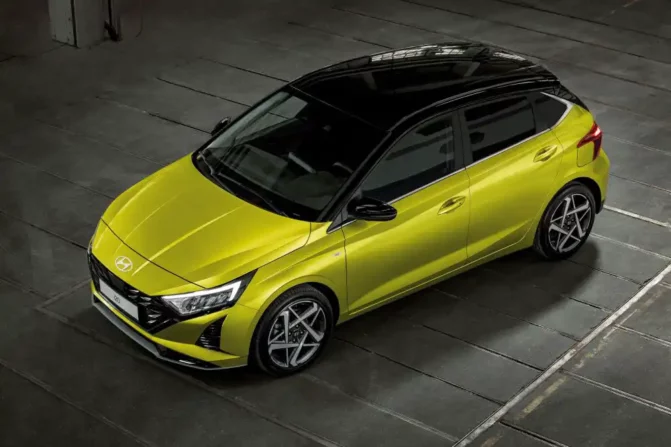
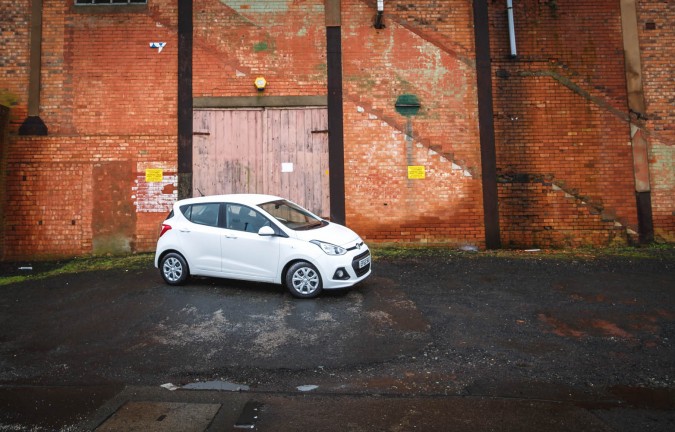
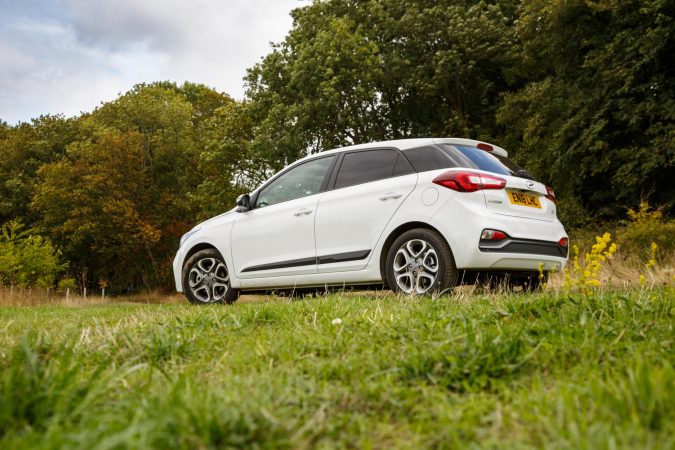
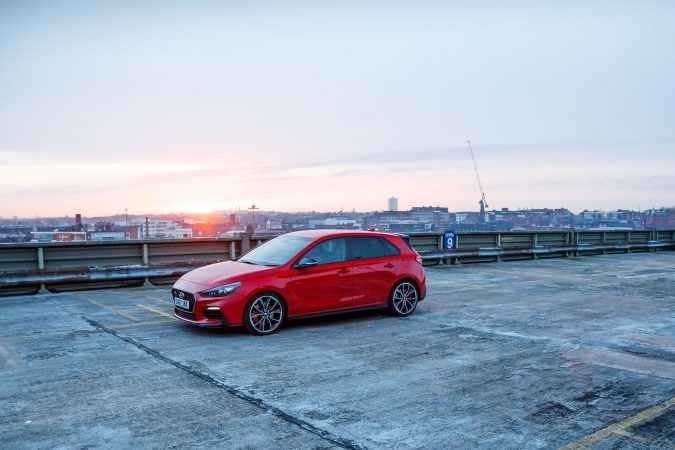
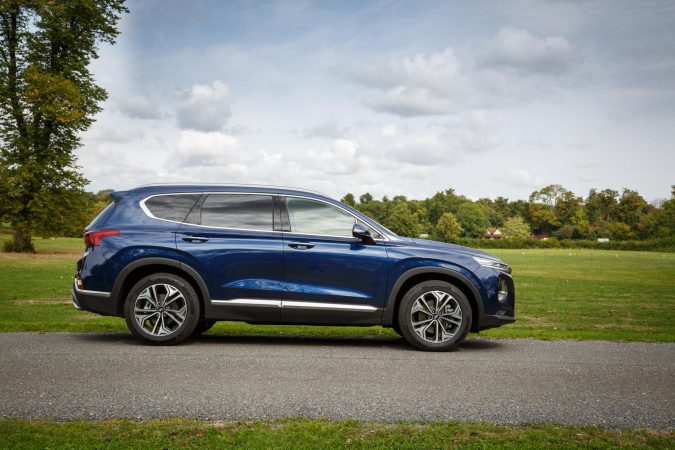
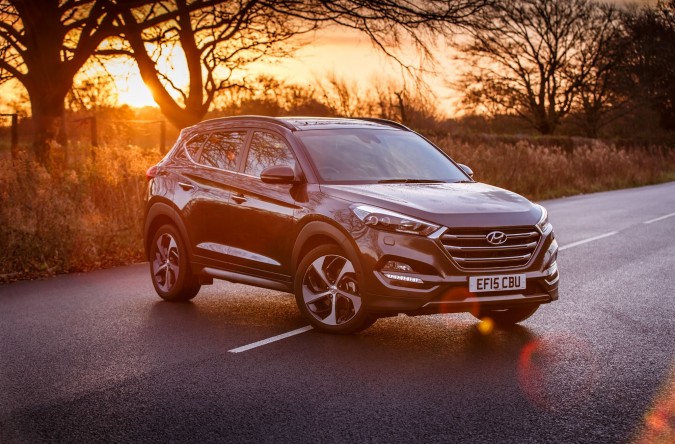
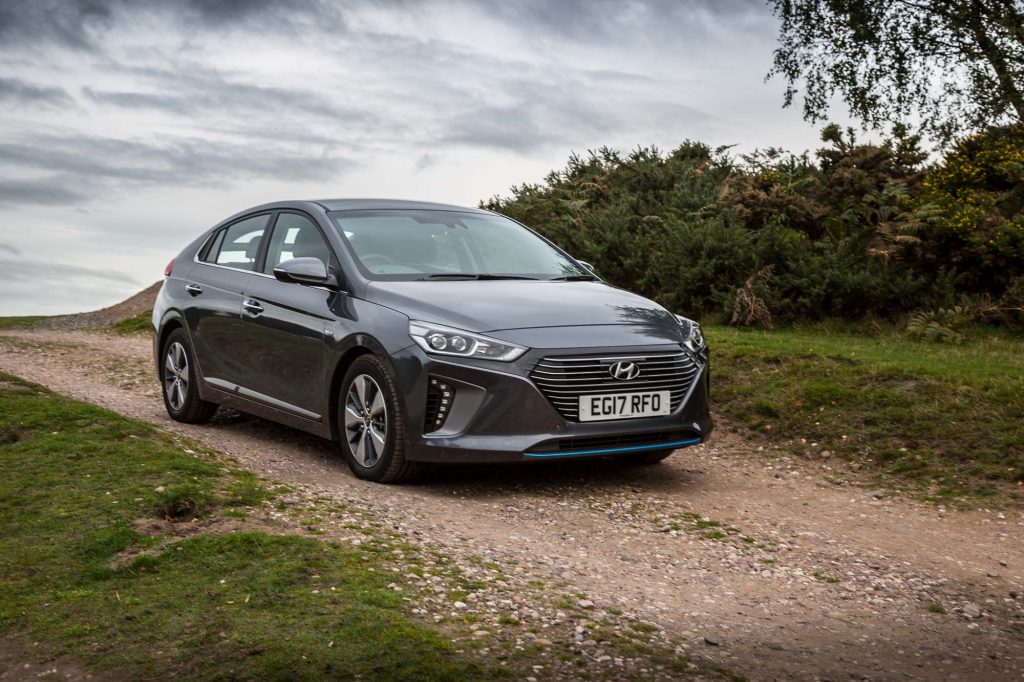
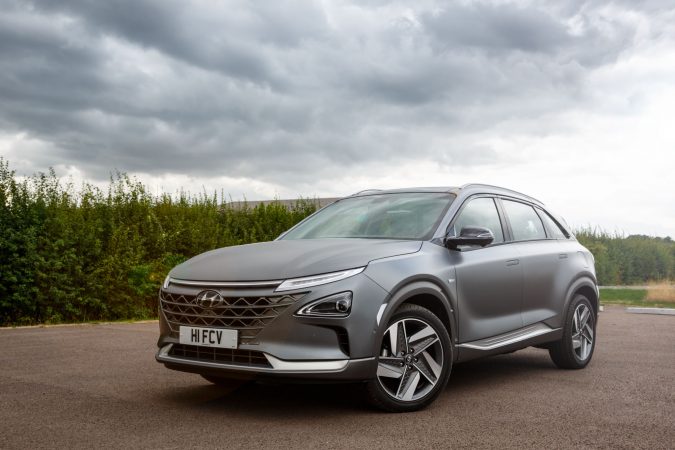
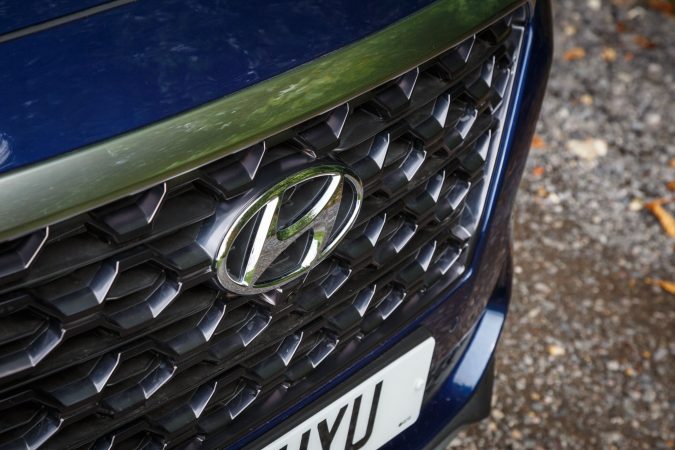
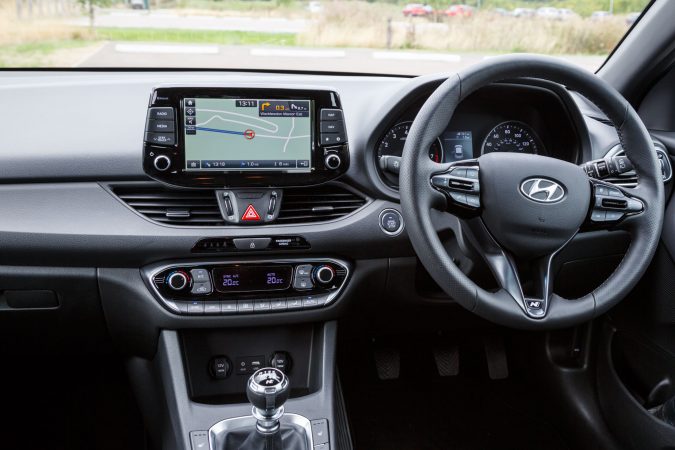
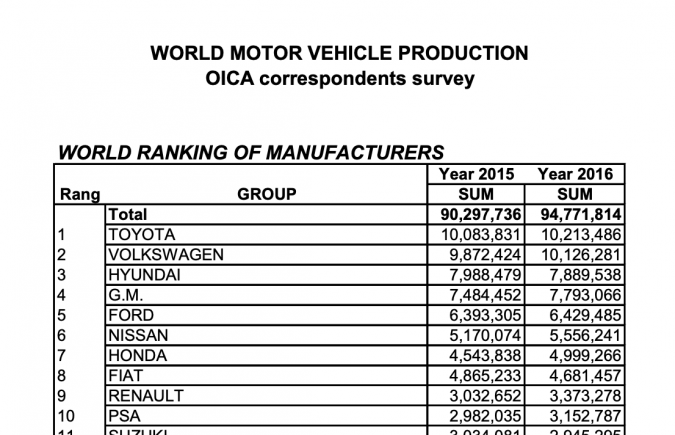
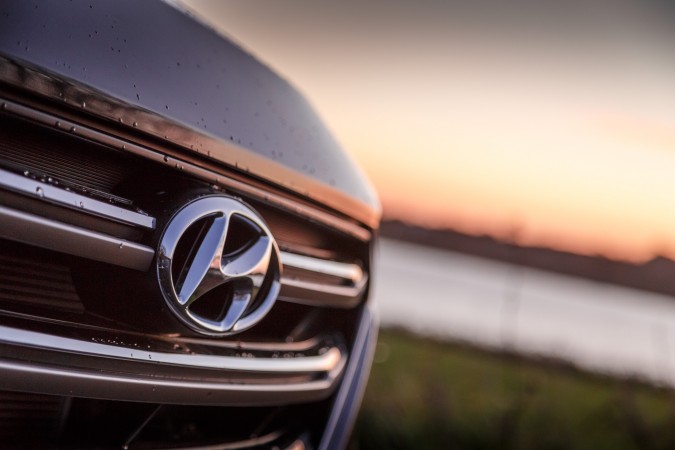
I noticed the i40 was never mentioned here I wonder why? Possibly the massive clutch and gearbox problems, wheel bearings master cylinders? My experience with Hyundai’s has not been so positive and talking to other owners clutch and gearbox seems a big and very expensive issue on these cars that for one reason or another has never really came out
Thanks for your comment, Brian!
Sorry that we’ve missed the i40. Although, the focus of this guide was more on the recent models within Hyundai’s line-up. Plus, we initially wrote this to focus on both the US and UK markets (we’re based in Britain). As of writing this article, the i40 was already discontinued in both regions, which is why we didn’t include it.
I wasn’t aware of the clutch, gearbox, and master cylinder issues you mentioned earlier. Hopefully, you’ve had those solved without any serious incidents. Now though, and thanks to you leaving this comment here, it might bring more insight and attention to anyone looking to buy a used i40, and perhaps, would be more attentive to any transmission-related issues.
Hi Cameron,
Thanks for sharing your views about the authenticity of Hyundai cars. Kindly throw some light on my query: Is Kona or Tucson better?
What do you think?
Thanks for the comment, Sam!
Funny you should ask, as we’ve recently written about a comparison between the Tucson and the Santa Fe (you can read it here: https://www.motorverso.com/hyundai-tucson-vs-santa-fe/). While we didn’t make mention of the Kona, the same concept applies to your dilemma – do you need the added size?
The Tucson is a larger SUV compared to the Kona (a compact vs sub-compact). Therefore, you’ll get more interior space and luggage capacity with the Tucson than with the Kona. Therefore, you have to ask yourselves whether that extra room is worth an upgrade to the Tucson over the Kona. I highly recommend going to a nearby showroom and getting a test drive plus first-hand experience sitting in both cars.
If you have a family, with kids, and want to grow into your cars down the line, I’d suggest the Tucson. For larger families especially, the added size will come in handy, especially with all your cargo, luggage, and whatnot stuffed into the back. If you have a dog or cat that you’re carrying around, they might also appreciate a larger luggage capacity to hang around in, as well.
Otherwise, you get beefier engines with the Tucson. Although, it does weigh more, and the Kona is arguably more sprightly and sporty. If you have a smaller family and don’t need the excess space, the Kona is still a fantastic choice. Plus, it should be more fuel-efficient (less weight to lug around) and cheaper to run. So, I hope that helps with picking between either model (both are still pretty great choices, it’s mostly a matter of preference and what you need).
Have owned Hyundai cars since 1999.Theyve gotten better and better. Have moved from A Palisade to a Genesis GV80. Not because of car but wanted a Genesis.
Thanks for the comment, daniel costa!
Yeah, Hyundai (as well as their sister brands, Kia and Genesis) have stepped up their game massively over the years. I remember I used to joke about how poorly made they are (as well as my own personal experience, being driven to and from school from an early 2000s Kia Rio). But these days, I hugely respect how far they’ve come, and their attention towards build quality, reliability, and tech.
Pretty fantastic cars overall, and would highly recommend them. Also, congratulations on the purchase! We’ve reviewed a UK-spec GV80 quite recently, and it’s definitely up there as one of the best luxury SUVs around. The Palisade is pretty great, too!